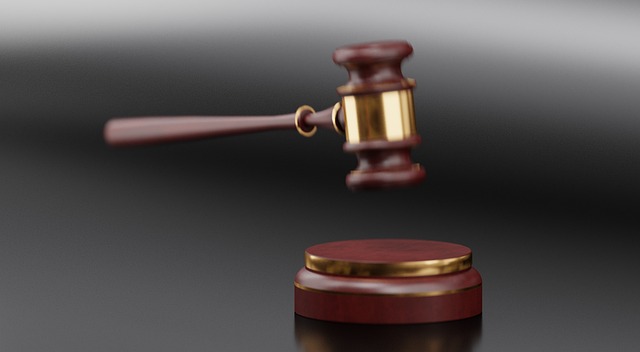Whistleblower Protection Laws shield individuals exposing illegal activities from retaliation, offering legal recourse through civil lawsuits. Plea bargaining, though efficient, may limit protections, as pleading guilty can waive challenges to disclosure legality. This balance is critical in philanthropy and politics, where whistleblowing exposes corruption. Sentencing severity, influenced by plea bargains, impacts career prospects and personal freedoms. Whistleblower Protection Lawsuits shape dynamics among whistleblowers, companies, and regulatory bodies, with successful cases achieving significant victories against fraud and corruption. However, challenges arise regarding deterrence and justice for victims in white-collar crime cases.
“Uncovering wrongdoings within organizations often requires courage, and whistleblower protection lawsuits play a pivotal role in ensuring accountability. This article explores the intricate world of legal safeguards for whistleblowers, focusing on key aspects such as understanding relevant laws, negotiating plea bargains, and assessing the impact on sentencing severity.
We delve into real-world case studies, highlighting both successful revelations and unique challenges faced by whistleblowers. By examining these elements, we aim to provide valuable insights for navigating the legal complexities surrounding whistleblower protection.”
- Understanding Whistleblower Protection Laws
- Plea Bargaining: Strategies for Whistleblowers
- Impact on Sentencing: Legal Implications
- Case Studies: Successes and Challenges
Understanding Whistleblower Protection Laws

Whistleblower Protection Laws are designed to safeguard individuals who expose illegal or unethical activities within their organizations. These laws ensure that whistleblowers are protected from retaliation, such as termination, harassment, or discrimination, for reporting wrongdoings. Understanding these protections is crucial when navigating high-stakes cases. In many jurisdictions, whistleblowers can seek legal recourse through civil lawsuits, aiming for compensatory damages and other remedies to enforce their rights.
One interesting aspect to consider in whistleblower protection lawsuits is the impact of plea bargaining on sentencing severity. While plea bargaining may resolve cases efficiently, it could potentially affect the availability of certain protections. For instance, a whistleblower who pleads guilty might face more lenient sentences but may also relinquish the right to challenge the legality of their disclosure, which could undermine winning challenging defense verdicts. This balance is especially relevant in philanthropic and political communities where whistleblowing can expose corruption and abuse of power.
Plea Bargaining: Strategies for Whistleblowers

Whistleblowers often face a delicate balance when deciding between pleading guilty or going to trial. Plea bargaining can be an effective strategy for those who want to mitigate their sentence and protect themselves from potential backlash. In high-stakes cases, especially involving corporate misconduct, plea bargaining might seem like an appealing option to avoid the uncertainty of jury trials. However, it’s crucial to weigh the impact on sentencing severity, as a negotiated plea may result in more lenient consequences compared to a conviction after a trial.
By entering into a plea bargain, whistleblowers can expect reduced charges or penalties and sometimes even immunity from prosecution. This approach allows them to protect their respective business interests while still providing valuable information that exposes wrongdoings. However, it’s essential to consider the long-term implications, as a criminal record or restrictive terms could affect future career prospects and personal freedoms.
Impact on Sentencing: Legal Implications

Whistleblower Protection Lawsuits have a profound impact on sentencing within legal proceedings, especially when it comes to plea bargaining. In many cases, whistleblowers who expose fraudulent or illegal activities face harsher penalties initially due to their decision to come forward. This is because prosecutors may view these individuals as potential witnesses and thus consider them more deserving of stringent punishment. However, the long-term impact extends beyond sentencing. Whistleblowers play a vital role in navigating all stages of the investigative and enforcement process, which can lead to winning challenging defense verdicts.
In the realm of white collar defense, the presence or absence of a whistleblower can significantly alter the outcome of a case. Those who choose to blow the whistle on corporate misconduct often face an uphill battle, but their actions can result in substantial changes to company policies and practices. This not only ensures stricter compliance but also serves as a deterrent for future violations. The legal implications of these lawsuits are far-reaching, reshaping the dynamics between whistleblowers, companies, and regulatory bodies.
Case Studies: Successes and Challenges

Whistleblower protection lawsuits have seen notable successes that highlight their importance in holding powerful entities accountable. Case studies reveal that when whistleblowers, often facing significant personal risks, step forward to expose fraud, corruption, or unsafe practices within their respective business, philanthropic, and political communities, it can lead to substantial changes. For instance, a lawsuit against a large corporation for covering up environmental damage resulted in a record settlement, compensating affected communities and enforcing stricter regulations.
However, challenges also arise, particularly when dealing with white-collar and economic crimes. Plea bargaining, while a common practice, can impact sentencing severity, sometimes resulting in light penalties for corporate offenders. This raises questions about the effectiveness of such agreements in deterring future misconduct and ensuring justice for victims. Navigating these complexities requires a nuanced understanding of both the legal system and the broader societal implications, especially as whistleblowers play a crucial role in exposing systemic issues within these communities.
Whistleblower protection lawsuits play a crucial role in upholding ethical practices within organizations, as evidenced by the strategic utilization of plea bargaining. By understanding the intricacies of whistleblower protection laws and their impact on sentencing, individuals can navigate legal complexities effectively. While case studies highlight both successes and challenges, the overall effect on sentencing severity underscores the importance of these protections in fostering transparency and accountability. This knowledge empowers whistleblowers to make informed decisions, ensuring their actions resonate through positive changes in today’s legal landscape.






